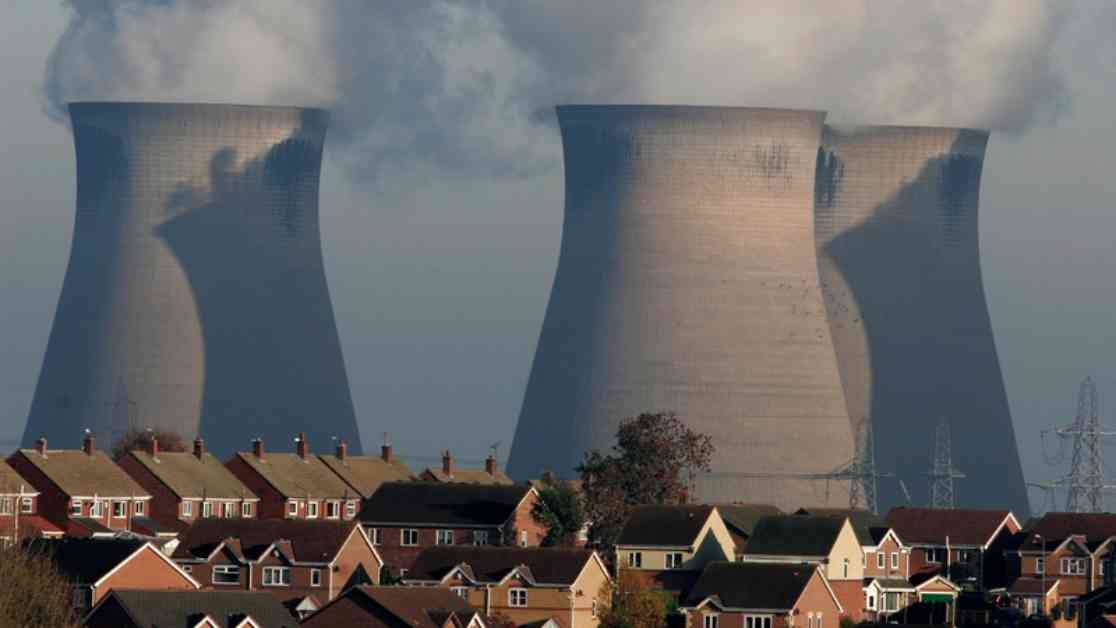Wealthy nations’ claims that their emissions reduction targets for 2035 are in line with limiting global warming to 1.5C have sparked skepticism among experts concerned about fairness. In recent months, countries such as the UK, Canada, and Switzerland submitted their Nationally Determined Contribution (NDC) plans to the United Nations, arguing that if all nations cut emissions as rapidly as they propose, the Paris Agreement goal of limiting warming to 1.5C above pre-industrial levels could be achieved.
However, critics, including scientists, campaigners, and the Canadian government’s climate advisors, point out that historically, the citizens of these affluent nations have been major contributors to climate change and should therefore make more significant emissions cuts than developing nations. Imperial College London climate scientist Robin Lamboll emphasized that wealthier nations are required by the Paris Agreement to lead the way towards net zero at a much faster pace than the global average.
Challenges in Achieving Net Zero
Developing countries often cite a lack of funding, lower responsibility for climate change, and the need for economic development as reasons for not setting net zero targets by 2050. For example, China, currently the world’s largest emitter, aims for net zero by 2060, while India targets 2070. Despite this, in 2024, global temperatures rose above 1.5C above pre-industrial levels, though experts clarify that breaching the 1.5C Paris goal requires a sustained average over at least two decades.
The COP28 climate summit in Dubai in 2023 established that the next round of NDC climate plans should align with limiting global warming to 1.5C. While a few NDCs have been released, developed countries, such as the UK, New Zealand, Canada, and Switzerland, argue that their plans are 1.5C-compatible because they aim for net zero by 2050. However, critics highlight the assumption that all countries should reduce emissions at the same rate, overlooking the disproportionate historical emissions of wealthier nations.
Addressing Disparities in Climate Action
Avantika Goswami, climate lead at the Centre for Science and Environment in India, emphasizes the higher historical burden of greenhouse gas emissions on developed nations, calling for faster emissions reductions from these countries. She criticizes the Paris climate accord for not obliging developed nations to make more significant contributions, unlike the 1997 Kyoto Protocol, which set emission reduction targets exclusively for developed nations.
The Net-Zero Advisory Body advises the Canadian government that the country may have exhausted its 1.5C-compatible carbon budget by the end of 2024. To fulfill its fair share of limiting global warming to 1.5C, Canada would need to be carbon-negative, absorbing more greenhouse gases than it emits. However, the country aims for net zero by 2050, prompting calls for additional emissions reductions abroad to compensate for its disproportionate share of the global carbon budget.
Many developing countries, such as Zambia, Zimbabwe, and the Maldives, stress their minimal contribution to climate change and their vulnerability to its impacts in their NDCs. These countries advocate for the principle of “common but differentiated responsibilities and respective capabilities,” emphasizing that countries with greater historical emissions and resources should take on a larger share of climate action.
Brazil, despite being a developing country, aims to reach net zero by 2050. The Brazilian NDC suggests that developing countries should achieve net zero as close as possible to 2050, with developed nations moving faster, ideally reaching net zero by 2045. This call aligns with the International Energy Agency and UN Secretary-General Antonio Guterres, who have urged developed countries to expedite their net zero targets to achieve global net zero by 2050.














